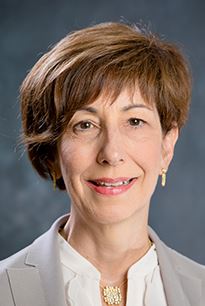Virtual DIA 2020: Regulators, Patients, Technology, And Networking

By Ed Miseta, Chief Editor, Clinical Leader

COVID-19 has disrupted lives around the world. Clinical trials have been impacted, with the virus making it difficult for pharma to start new trials, and existing trials are hampered by the constrained ability of patients to visit their clinics. The trade show industry, which has been critical to knowledge sharing, networking, and relationship-building has also been significantly impacted by travel restrictions and responsible social distancing practices. Most conferences have been cancelled or opted to turn their events into virtual gatherings. Even the DIA Global Annual Meeting, the largest industry gathering in the clinical and regulatory space, has announced it will be a virtual event.
The meeting, scheduled for June 14 through 18, promises to deliver the valuable sessions, information, and networking that attendees experienced in the past. DIA will be hosting all its tracks, with many sessions and speakers remaining unchanged and organizers working with stakeholders to finalize the schedule.
Despite the evolution of the event from in-person to virtual, Barbara Lopez Kunz, global chief executive for DIA, promises a fulfilling conference experience for all attendees. “Never in our industry’s history has the need to come together to share experiences, network, and collaborate been more important. The DIA Global Annual Meeting is still the time, place, and moment for life science professionals to learn from each other and focus on the future of health. For all our members and attendees, we still believe this to be their moment. We are doing everything we can to bring the much-needed forum to life in a virtual setting to offer many of the same benefits that members have enjoyed at previous events.”
In addition to the learning sessions and virtual networking opportunities, participants will be able to engage with solution providers in a virtual exhibit hall. I will share additional information about the exhibit hall in an upcoming podcast, but for now, Kunz promises the exhibits will enable attendees to engage and interact with experts and key decision makers as they have in the past.
Pharma’s Innovation And Impact
The learning sessions have always been the main attraction for DIA attendees, and there is a lot for speakers to discuss this year. Science continues to make us the benefactors of a dramatically improved understanding of human health, and new therapeutic development has never been more important. We know more about how diseases manifest than at any time in history. We also have an improved understanding of how to prevent many diseases from manifesting and how to cure them when they appear.
“On top of that, COVID-19 is driving tremendous innovation in the industry,” says Kunz. “DIA is a neutral platform where stakeholders across the industry can gather to discuss what’s most important right now.”
At this year’s meeting, Kunz would like the industry to celebrate the accomplishments that have been made in healthcare and discuss what the future holds for everyone serving the patient community. She hopes the result will create energy and a sense of pride and hope for what the industry can do to improve patient health around the world. Additionally, DIA 2020 presents attendees with a timely opportunity to better understand what can be learned learn from today’s COVID-19 climate and industry response.
“We are going to have a lot of discussions around what's really happening with innovation – particularly given its acceleration in light of COVID-19 – and how innovation is impacting new policies, new therapies, and new regulatory standards,” says Kunz. “Many innovations are helping to speed up and redefine the risk/benefit profile for some of the emerging technologies that are coming to market. Patient engagement, a topic that DIA has led for the past 15 years, will remain a primary focus, this year looking specifically at how clinical trials have used technology to drive engagement during the pandemic.”
Data Is A Hot Topic
Three trending topics that are expected to be front and center this year are patient centricity, the use of AI in trials, and real-world evidence. “We now have the ability to collect incredible volumes of data,” says Kunz. “This is certainly coming from the research side with the use of genomic and other -omic technologies.” But this data is also resulting from the migration of real healthcare data into electronic medical records and the data mined from claims records.

Of course, the news around big data is not all positive. Accessing and using patient data for research also creates concerns around privacy, how we use the data, and who that data belongs to. Those topics were addressed at last year’s annual meeting and will be addressed again this year.
Sessions will also address the quality and accuracy of real-world evidence.
“We’re hearing a lot about the use of blockchain to create segregated data pools to have inherent boundaries to help with that privacy concern,” adds Kunz. “We know that privacy concerns have not yet been solved, and many approaches to doing so are still in their infancy.”
Bring Together Regulators
“Several of our sessions will be on the evolving regulatory front,” states Kunz. “Our annual meeting has always brought together people from all around the world, and this year’s virtual event will not be an exception. COVID-19 has put a spotlight on regulatory issues around the globe. DIA is the perfect place to discuss the recent changes in the regulatory environment and how they will have a lasting impact on our industry. We expect regulators from many countries to attend, and discussions to focus on how regulators worldwide have worked to break down silos, collaborate, accelerate review and approvals, and create best practices during the pandemic, as well as how we can continue to evolve and apply the learnings from today’s real-time events in the future. The guidance they put out will be used in the developed regulatory markets and in countries that are emerging or in the early stage of developing regulatory guidelines.”
Regulators are sharing best practices more fluidly but also looking at how to better accelerate regulatory approval. Kunz notes some of that work started a decade ago with accelerated pathways, a route to approval and commercialization being used in many more therapies and are especially relevant in today’s COVID-19 world.
Professional development is always a part of the meeting, and Kunz notes other sessions will continue to focus on self-development and training.
Patients Play A Role
Today, no pharmaceutical conference is complete without the voice of the patient. DIA will again make sure those voices are heard. A patient will deliver the keynote address, which Kunz notes will be an inspiring presentation. Patients are also expected to take part in the conference sessions.
“Patients will participate on the panels,” Kunz notes, “so be prepared to hear about their experience and how they are promoting advocacy. We will discuss their journeys and the investment and science that went into them. We know the patient community is also involved with regulators and influencing policy that's being implemented here and in Europe.”
“DIA is much more than just a meeting of individuals focused on the future of health,” adds Kunz. “We have become the convening body for key industry stakeholders having conversations around a vision of better patient outcomes and how to drive the future transformation of the industry at large. That will not change with our virtual conference. The communication and discussions that take place at DIA resonate far beyond the conference and will help to have an immediate impact among industry stakeholders working tirelessly to identify how and where to apply their knowledge, expertise and learnings to collaborate and redefine critical life science work.”
For more information, please visit the DIA website.
